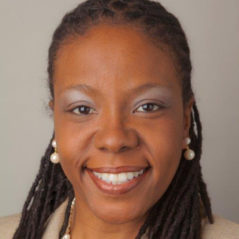Complete College America, a national nonprofit organization with the goal to raise postsecondary attainment in the United States, has announced the launch of a network of 22 historically Black community colleges (HBCCs) and predominantly Black community colleges (PBCCs) across eight states. With $1.5 million in support from the Lumina Foundation and the Annie E. Casey Foundation, the PBCC-HBCC Network will share research and best practices to strengthen the career and economic outcomes of community college students of color.
Nationally, there are 12 historically Black community colleges and 49 predominantly Black community colleges. Under the definition created by the federal government in 2008, PBCCs have enrollments that are at least 40 percent Black and have at least 50 percent of students from under-resourced households or first-generation students. HBCCs are defined as institutions with a historical mission of serving Black students that predates the 1964 Civil Rights Act.
The project focuses on the connection between educational experiences and career outcomes of Black students. Over two years, colleges will assess their current degree programs to identify courses and competencies that lead to credentials of value and are aligned with the needs of employers. They will also work to identify best practices around career and academic advising and wraparound supports to help meet students’ basic needs, such as access to nutrition, housing, and affordable transportation. Research, evaluation, and the identification of best practices will be at the core of the PBCC- HBCC Network’s efforts. Participating institutions will form a national community of experts and practitioners that will enable PBCCs and HBCCs to share expertise resources across institutions — and tap into the network for technical assistance and support from national experts and peer institutions.
 “Despite the significant number of Black students they serve, historically Black community colleges and predominantly Black community colleges have only relatively recently gained the increased recognition they deserve for the unique and critical role that they play,” said Yolanda Watson Spiva, president of Complete College America. “We undertake this work with profound respect for the mission, impact, and history of these institutions. This is about finding new ways to align HBCC and PBCC programming and support services with workforce needs — and create credentials of value that meet the unique needs and aspirations of adult learners of color.”
“Despite the significant number of Black students they serve, historically Black community colleges and predominantly Black community colleges have only relatively recently gained the increased recognition they deserve for the unique and critical role that they play,” said Yolanda Watson Spiva, president of Complete College America. “We undertake this work with profound respect for the mission, impact, and history of these institutions. This is about finding new ways to align HBCC and PBCC programming and support services with workforce needs — and create credentials of value that meet the unique needs and aspirations of adult learners of color.”
Dr. Watson Spiva earned her undergraduate degree in economics from Spelman College in Atlanta. She holds a master’s degree in public policy from the University of Chicago and a Ph.D. in higher education from Georgia State University.
Community colleges that have joined the network are:
+ Alabama: Bishop State Community College, Chattahoochee Valley Community College, Gadsden State Community College, Trenholm State Community College, J.F. Drake State Community and Technical College, Lawson State Community College, Shelton State Community College, and Wallace Community College Selma
+ Arkansas: Arkansas State University Mid-South, Southeast Arkansas College, and University of Arkansas-Pulaski Technical College
+ Georgia: Atlanta Metropolitan State College
+ Illinois: Olive-Harvey College
+ Louisiana: Baton Rouge Community College, Delgado Community College, and Southern University at Shreveport
+ Massachusetts: Roxbury Community College
+ Michigan: Wayne County Community College District
+ South Carolina: Central Carolina Technical College, Denmark Technical College, Northeastern Technical College, and Orangeburg-Calhoun Technical College












Can Yolanda please explain why Hinds Community College (e.g., “the largest community college in the state of Mississippi”) is not part of this network? Something is inherently wrong with that decision making.